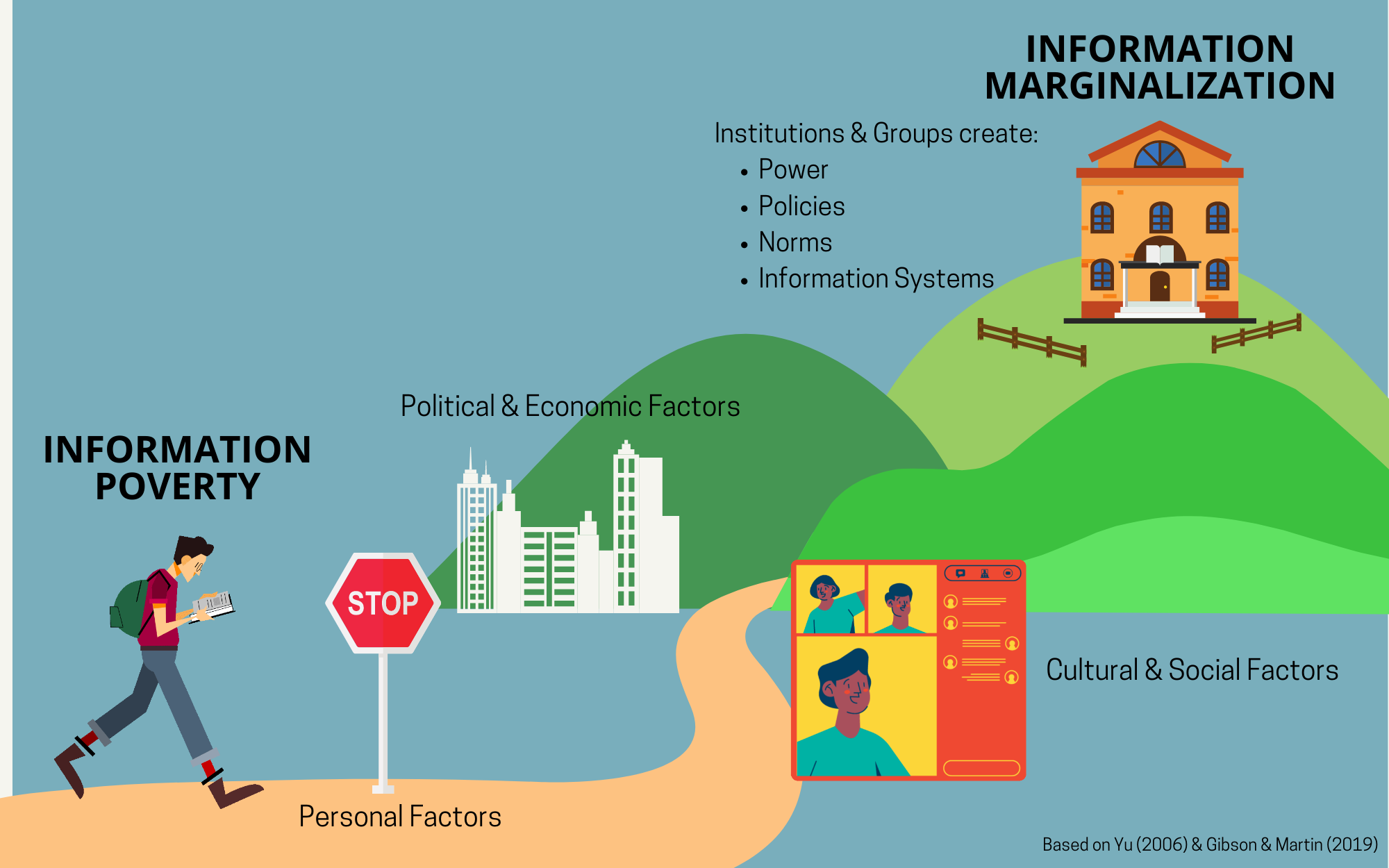Information Poverty & Marginalization
Information poverty (Chatman, 1996) is a theory that describes how people from marginalized groups decide if and when seeking information from a particular source or in a particular place becomes too risky. The theory says that power and privilege influence a person’s physical, emotional, intellectual, or financial ability to seek, find, and use information, and when the potential costs of using a source (like the library) outweigh the benefits, people choose not to use the space. The theory of Information marginalization, on the other hand, describes the mechanisms in institutions and or community/social groups create information poverty. Policies and practices like demanding excessive personal information, withholding information, or putting community members at risk for incarceration could all make the potential costs of using the library too high. Disparate impacts on different groups are also important to consider. Fines that inconvenience some patrons and are prohibitive to others are not equitable or inclusive.
Providing high-quality information services to traditionally marginalized communities require librarians and other information professionals, (whether they are building social or technical information systems) to understand information poverty and information marginalization as perspectives that illuminate the mismatch of information values and power imbalance that often exists between marginalized people and the institutions that claim to serve them.
It is important for librarians and information professionals to examine how power imbalances manifest in the different contexts and at different scales throughout the library. An understanding of the ways in which marginalization occurs and the range of responses people experiencing informational marginalization is essential in order to make meaningful changes to create equitable information systems that serve diverse communities well.
Adapted from Re-Situating Information Poverty: Information Marginalization and Parents of Individuals With Disabilities (Gibson & Martin, 2019)
Pause for Reflection
- What dangers might using the library pose to your community members (disabled community members in particular)? If you’re having trouble, start by thinking about what happens when community members break rules or policies.
- What information do you ask for? What could the risk of personal data collection be for different community members?
- What could be some of the potential repercussions of these groups, not being able to access the information they need?

